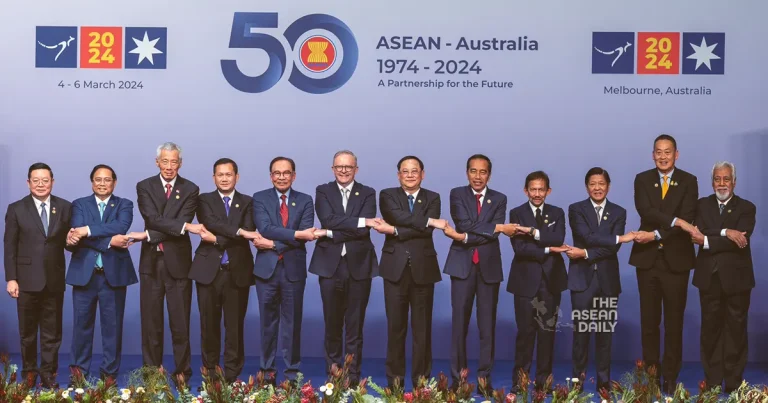6-3-2024 (MELBOURNE) Australia’s Prime Minister, Anthony Albanese, highlighted the pivotal role of maritime security, trade, and clean energy in shaping the nation’s future relationship with the ASEAN bloc during the ongoing summit in Melbourne. The summit marks the 50th anniversary of Australia’s ties with ASEAN, unveiling a commitment to collaboration even as differences persist within the bloc regarding China’s expanding diplomatic and military presence in the South China Sea.
In his address at the three-day summit, Albanese expressed Australia’s dedication to upholding principles such as sovereignty, territorial integrity, equality, and independence. He emphasized the joint responsibility of Australia and the Association of Southeast Asian Countries (ASEAN) in ensuring a secure, resilient, open, inclusive, and prosperous region.
Albanese stressed the need for practical cooperation between Australia and ASEAN on marine sustainability and security, urging both parties to transform their natural connection into tangible initiatives.
These remarks come amidst rising tensions in the South China Sea. On Tuesday, the Philippines summoned China’s deputy chief of mission in Manila to protest “aggressive actions” by Chinese naval forces against a resupply mission for Filipino troops stationed on a South China Sea shoal. The maritime dispute is a longstanding issue, with Beijing claiming nearly the entire South China Sea, a critical route for over $3 trillion worth of ship-borne commerce annually. Despite a 2016 ruling by the Permanent Court of Arbitration invalidating China’s claims, tensions persist.
Malaysian Prime Minister Anwar Ibrahim, in a joint press conference with Albanese on Monday, commented on the growing “China-phobia” in the West. Anwar, in an interview with the Sydney Morning Herald, asserted that the risk of conflict in the South China Sea had been exaggerated.
The summit, set to conclude later on Wednesday, is anticipated to release a joint declaration outlining ASEAN’s position on the Israel-Gaza war and Russia’s invasion of Ukraine, addressing global concerns beyond regional disputes.




